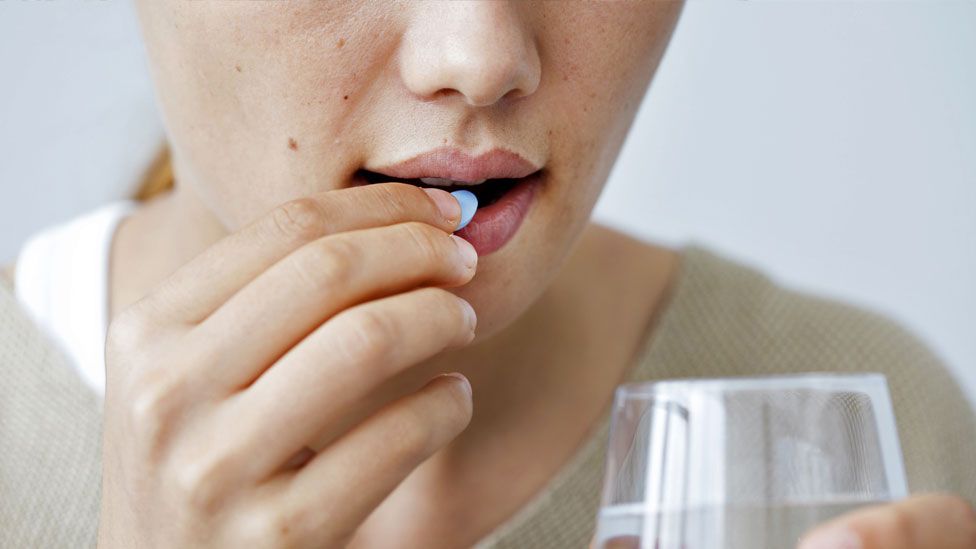Right now, protection against Covid-19 comes via an injection. But in future, those vaccines could come from inhalers or even pills.
In a white, airy laboratory in Medicon Village, one of southern Sweden's largest science parks, chemist Ingemo Andersson holds up a thin, plastic inhaler, half the size of a matchbox.
Her team is hoping this tiny product could play a big role in the global fight against coronavirus allowing people to take powdered versions of future vaccines at home.
"It's easy and it's really cheap to produce," says Johan Waborg, CEO of the firm, which usually makes inhalers for patients with asthma.
"You just remove a little plastic slip and then the vaccine inhaler is activated and you just put it in your mouth, take a deep breath and inhale."
The company, Iconovo, is collaborating with an immunology research start-up in Stockholm, ISR, which has developed a dry-powder vaccine against Covid-19.
It uses manufactured Covid-19 virus proteins (unlike Pfizer, Moderna and Astra Zeneca which use RNA or DNA that code for these proteins), and can withstand temperatures of up to 40C.
That's a major contrast to the conditions needed to store the current commonly available coronavirus vaccines approved by the World Health Organization (WHO), which are all in liquid form.
They have to be kept in tough glass vials in temperatures as low as -70C, before being transferred to fridges, or they they lose effectiveness - known as the "cold chain".
"The game-changer is that you could distribute the [powder] vaccine extremely easily without the cold chain, and it can be administered without the need for healthcare providers," says ISR's founder, Ola Winquist, a professor of immunology at the Karolinska Institute, one of Sweden's leading medical universities.
Freeze-dried foods
The company is currently testing its vaccines on the Beta (South African) and Alpha (UK) variants of Covid-19.
It believes it could prove especially useful in speeding up vaccine rollouts in Africa where there are currently no home-grown vaccine manufacturers, and warmer climates and limited electricity supplies have led to major challenges when it comes to storing and delivering Covid-19 vaccines before they expire.
There is still some way to go before trials indicate the full potential of ISR's air-dried vaccine, including whether it can offer the same level of protection as the current list of vaccines approved by the WHO.
So far, it has only been tested on mice, although ISR and Iconovo have raised enough funding to begin studies on humans within the next two months.

